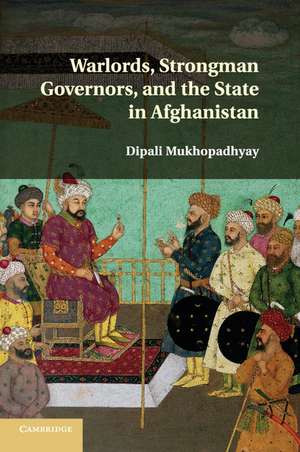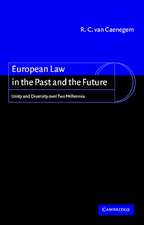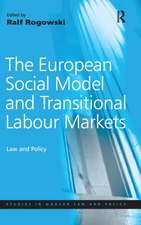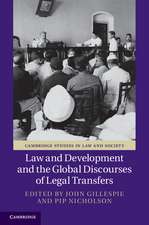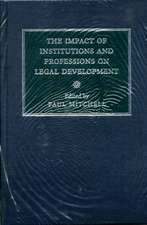Warlords, Strongman Governors, and the State in Afghanistan
Autor Dipali Mukhopadhyayen Limba Engleză Paperback – 6 ian 2016
| Toate formatele și edițiile | Preț | Express |
|---|---|---|
| Paperback (1) | 321.90 lei 6-8 săpt. | |
| Cambridge University Press – 6 ian 2016 | 321.90 lei 6-8 săpt. | |
| Hardback (1) | 784.65 lei 6-8 săpt. | |
| Cambridge University Press – 12 feb 2014 | 784.65 lei 6-8 săpt. |
Preț: 321.90 lei
Nou
Puncte Express: 483
Preț estimativ în valută:
61.60€ • 66.89$ • 51.75£
61.60€ • 66.89$ • 51.75£
Carte tipărită la comandă
Livrare economică 22 aprilie-06 mai
Preluare comenzi: 021 569.72.76
Specificații
ISBN-13: 9781107595859
ISBN-10: 1107595851
Pagini: 388
Ilustrații: 6 b/w illus.
Dimensiuni: 152 x 230 x 21 mm
Greutate: 0.52 kg
Editura: Cambridge University Press
Colecția Cambridge University Press
Locul publicării:New York, United States
ISBN-10: 1107595851
Pagini: 388
Ilustrații: 6 b/w illus.
Dimensiuni: 152 x 230 x 21 mm
Greutate: 0.52 kg
Editura: Cambridge University Press
Colecția Cambridge University Press
Locul publicării:New York, United States
Cuprins
1. Introduction; 2. Atta Mohammad Noor, the Son of Balkh; 3. Gul Agha Sherzai, the neo-Khan of Nangarhar; 4. Ismail Khan, the Emir of Herat and Juma Khan Hamdard, the Wandering Wali; 5. Conclusion.
Recenzii
'Mukhopadhyay brings the much abused category of 'warlord' to life in this innovative and path breaking study of regional politics in Afghanistan. It provides the previously missing analytic rigor in a comparative study of the fraught relationship of a weak state center and its unruly peripheries.' Thomas Barfield, Professor of Anthropology, Boston University
'This is an outstanding volume not only for the courageous fieldwork on which it is based and its subsequent empirical insights, but because it provides a needed alternative to outdated notions of state building. It challenges the too often accepted idea that power equals centralization. It also takes our focus away from normative, and nominal structures to the real informal processes behind any kind of authority. Third, it once again shows that the search for political perfection may be the worst enemy of basic governance. Should be read by anyone interested in 21st century politics.' Miguel Angel Centeno, Musgrave Professor of Sociology, Princeton University
'Warlords, Strongman Governors, and the State in Afghanistan could not be timelier. This book is among the few that take seriously the dynamic processes of state-building in Afghanistan and the resilience of its current and surprisingly resilient phase. Mukhopadhyay provides a keen analysis of how and under what conditions state authority benefits from local warlord strengths in terms of personal reputation, charisma and skill as a patron. Through extensive field research in Afghanistan, Mukhopadhyay shows how politics in Afghanistan really works, and reveals concrete and specific information on how the convergence of politics at the center and in the provinces makes the Afghan state stronger in significant ways. This book is essential reading for anyone interested in contemporary strategies of state-building generally and in this important process in this critical region.' William Reno, Professor of Political Science, University of Wisconsin
'Few terms are as pejorative in common usage as 'warlord', and warlordism has been a source of great suffering in many settings. In Warlords, Strongman Governors, and the State in Afghanistan, however, Dipali Mukhopadhyay argues that Afghan warlordism has had highly variable dynamics and consequences: while some strongmen have brought suffering and instability, others have actually advanced the cause of political order in a weak state, with systematic variations in local conditions accounting for the difference. She builds her case on a foundation of richly detailed field research, with results that pose important implications for counterinsurgency, governance reform, and theories of political development. Her provocative analysis will cause both scholars and policy makers to re-examine their views on this critical topic.' Stephen Biddle, Professor of Political Science and International Affairs, The George Washington University
'Mukhopadhyay draws on extensive field research in this study of the relationship between provincial governors and the Afghan state. Challenging the traditional view of warlords as reckless and irresponsible governors, she suggests that many have actually played a crucial role in extending the influence of the central government into rural Afghanistan.' Survival
'This is an outstanding volume not only for the courageous fieldwork on which it is based and its subsequent empirical insights, but because it provides a needed alternative to outdated notions of state building. It challenges the too often accepted idea that power equals centralization. It also takes our focus away from normative, and nominal structures to the real informal processes behind any kind of authority. Third, it once again shows that the search for political perfection may be the worst enemy of basic governance. Should be read by anyone interested in 21st century politics.' Miguel Angel Centeno, Musgrave Professor of Sociology, Princeton University
'Warlords, Strongman Governors, and the State in Afghanistan could not be timelier. This book is among the few that take seriously the dynamic processes of state-building in Afghanistan and the resilience of its current and surprisingly resilient phase. Mukhopadhyay provides a keen analysis of how and under what conditions state authority benefits from local warlord strengths in terms of personal reputation, charisma and skill as a patron. Through extensive field research in Afghanistan, Mukhopadhyay shows how politics in Afghanistan really works, and reveals concrete and specific information on how the convergence of politics at the center and in the provinces makes the Afghan state stronger in significant ways. This book is essential reading for anyone interested in contemporary strategies of state-building generally and in this important process in this critical region.' William Reno, Professor of Political Science, University of Wisconsin
'Few terms are as pejorative in common usage as 'warlord', and warlordism has been a source of great suffering in many settings. In Warlords, Strongman Governors, and the State in Afghanistan, however, Dipali Mukhopadhyay argues that Afghan warlordism has had highly variable dynamics and consequences: while some strongmen have brought suffering and instability, others have actually advanced the cause of political order in a weak state, with systematic variations in local conditions accounting for the difference. She builds her case on a foundation of richly detailed field research, with results that pose important implications for counterinsurgency, governance reform, and theories of political development. Her provocative analysis will cause both scholars and policy makers to re-examine their views on this critical topic.' Stephen Biddle, Professor of Political Science and International Affairs, The George Washington University
'Mukhopadhyay draws on extensive field research in this study of the relationship between provincial governors and the Afghan state. Challenging the traditional view of warlords as reckless and irresponsible governors, she suggests that many have actually played a crucial role in extending the influence of the central government into rural Afghanistan.' Survival
Notă biografică
Descriere
This book argues that Afghani warlords can under certain conditions become effective governors on behalf of the state.
